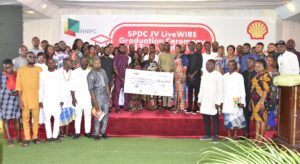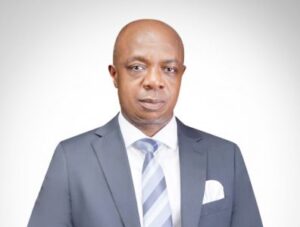
Nigerian Content Development: Chevron’s success story
The Nigerian oil and gas industry is strategic to the overall socio-economic development of the country. Nigerian Content (“NC”) development is critical for the nation as it progresses in its quest to acquire oil and gas technology and build indigenous capacity in the oil and gas industry. As an industry that thrives on partnership with key stakeholders, International Oil Companies and indigenous oilcompanies are expected to play an active role in the industry.
Chevron companies in Nigeria had developed and imbibed the Local/Nigerian Content development philosophy well before the April 2010 enactment of the Nigeran Oil and Gas Industry Content Development Act (“NOGICD Act”). Chevron Nigeria Limited (“CNL”), operator of the Nigerian National Petroleum Corporation (“NNPC”) / CNL Joint Venture, is at the forefront of promoting Nigeria’s ideals of Nigerian Content development. Over the years, the company has continued to add value and partner with Nigeria, as it commits itself to the vision of being “The global energy company most admired for its people, partnership and performance.”
The overall objective of CNL’s NC policy is to encourage the participation of Nigerian companies in the oil and gas industry through the deliberate creation of business opportunities for Nigerian service providers and suppliers. CNL’s NC policy is driven by the vision to be recognized as the petroleum company that works best to foster competence and competitiveness among Nigerian indigenous contractors and suppliers, by adopting the participatory-partnership model.
CNL has unwavering commitment to NC development. Over the years, the company has implemented strategies for training, capacity building and employment of Nigerians, as well as the provision of contracts and procurement opportunities to Nigerians on all projects in our operations. CNL continues to play a leading role in building and sustaining the capacity of indigenous companies and contractors in Nigeria’s oil and gas industry. We consistently demonstrate our commitment to empowering community contractors, service providers and suppliers through developing human and institutional capacity, creating local jobs, developing, and sourcing from local suppliers, employing local workforce, promoting local patronage, and reserving work scope to benefit local community contractors.
The Chairman/Managing Director of CNL, Richard Kennedy, explains the company’s stance on Nigerian Content thus:
“At Chevron Nigeria Limited, we demonstrate our commitment to the socio-economic development of Nigeria by building mutually-beneficial partnerships and supporting the policies of government on Nigerian Content Development.We have helped in building the capacities of several Nigerian businesses by providing contracts and procurement opportunities to Nigerians on all projects in our operations. Chevron is also helping to grow the Nigerian economy by contributing to the development of communities in the areas of our operation. We do all this, not just because it is required by the law, but because it is the right thing to do.”
Chevron works closely with the Nigerian Content Development and Monitoring Board (“NCDMB”) and the Nigerian National Assembly in advocating NC matters. Chevron has a four-pronged approach to NC, inspired by the commitment to ensure Nigerian entrepreneurs (both at the local community and national levels) acquire the right competencies and capabilities to compete for business opportunities with their contemporaries at regional and international levels. The approach includes selection of qualified local contractors; facilitation of partnerships and alliances between indigenous companies and foreign firms; capacity building; and development of local competencies.
In the last 10 years, CNL has spent an estimated annual average of $1 billion on Nigerian suppliers and service providers. Chevron provides technical support, support for asset acquisition, and facilitates collaboration on research and development forlocal community contractors. This has helped Nigerians benefit from the oil and gas industry while developing Nigerian commerce. Chevron completed construction training for 161 Nigerians on welding, fabrication, and craft at the Nigerdock facility, Snake Island, Lagos for its Sonam Development Project.
On the Agbami Phase 3 Development Project, Chevron sponsored four Nigerian engineers for subsea engineering training in France, in partnership with NCDMB and Technip Offshore Nigeria Limited. The training also included visits to manufacturing plants in France and Norway. Chevron trained six young Nigerian Engineers in subsea engineering at the FMC Technologies Limited (“FMC”) facility, Federal Ocean Terminal (FOT) Onne, Rivers State. In addition, five Nigerian Engineering graduates sponsored by CNL, completed subsea training at Marine Platforms Limited in Port Harcourt. One of the trainees was offered full-time employment with Marine Platforms Limited(MPL) as a Marine Cadet.
CNL’s accomplishments in human capital development include training 14 earth science graduates in two batches under the 12-month skills acquisition programme initiated by NCDMB. CNL offered scholarships to Nigerian seamen for dynamic positioning training at PEM Offshore Limited, a marine training facility with a contract worth $1 millionand collaborated with the NCDMB to assist over 600community graduates to register in the Nigerian Oil and Gas Industry Content Joint Qualification System. CNL awarded a contract to a local consulting firm, Lonadek Nigeria Limited, to develop and pilot an industry-first capacity building initiative for drilling and completion professionals.
Chevron facilitated the assembly by FMC of the first assembled-in-Nigeria Subsea Horizontal Christmas Tree and the fabrication in Nigeria of Agbami production manifolds for the Agbami Phase 3 Project by FMC /Aveon Offshore Nigeria Limited. Chevronensured the safe, timely and successful installation of subsea equipment like flexible flowlines, umbilicals, and jumpers on the Agbami Phase 3 project by a Nigerian contractor – Marine Platforms Limited.Chevron also recently facilitated the fabrication and assemblyof the complicated Single-Point Mooring(“SPM”) buoys structuresby Fenog Nigeria Limited (“Fenog”), an indigenous independent engineering company. The two SPM buoys, being delivered by Fenog, are critical components of the Escravos Export System Project (“EESP”) scope, required to improve reliability of current JV offshore crude export facilities.
It is on record that CNL facilitated the fabrication and load out of offshore platform topsides andbridge connection for the Sonam Non-Associated Gas Well Platform (“NWP”) by Nigerdock Plc.; the fabrication and load-out of the Okan PRP topsides; bridge fabrication of Okan PRP jacket by Globestar Company Limited, in partnership with Idmon Engineering and Construction Co. Limited; installation of 32km 24″ Sonam to Okan NWP pipeline by West African Ventures Limited; and the coating of the pipes used for the Sonam Development Project and EESP by Pipe Coaters Nigeria Limited.
“We will continue to empower Nigerian service providers and suppliers through human and business capacity development; local patronage and work scope allocation; fostering of business partnerships and sponsorship of research and development programmes to enhance the capacity of indigenous companies to participate in the oil and gas industry.”
Chevron has a long history of commitment to NC development. The Agbami project set industry standards by fabricating more than 10,000 tonnes of steel with Nigerian fabrication companies, the highest ever recorded in Nigeria.Chevron also trained 105 Nigerian engineers from 21 engineering companies in South Korea. The Escravos Gas Project (EGP) has employed over 1,800 Nigerians and sourced millions of Dollars’ worth of services (engineering, procurement, fabrication, marine, etc.) locally.
Also, the Escravos Gas-to-Liquids (EGTL) project provided employment to more than 15,000 Nigerians during the construction phase of the project. In addition, the project awarded huge sub-contracts to local community contractors, sent 234 Nigerians on a 30-month training program in South Africa at the synthetic fuel facilities of Sasol Limited and trained over 7,000 Nigerians in technical skill crafts, plant operation and maintenance, business and project management, logistics and supply chain management, as well as gas tungsten arc welding processes. CNL has demonstrated unprecedented support for the local barite mining industry by donating barite mining equipment worth $1.4 million and training to the Association of Miners and Producers of Barite to boost the supply and quality of local barite, reduce importation of barite and create jobs for the local communities.
Chevron will continue to be committed to the NOGICD Act, as part of our support for local capacity building. We will continue to help build Nigerian businesses in general, to support the Nigerian Content policy of the Federal Government. CNL’s Chairman/Managing Director affirmed this when he said that:



